Top 17 Dangers and Risks of Outsourcing Your Blog Posts
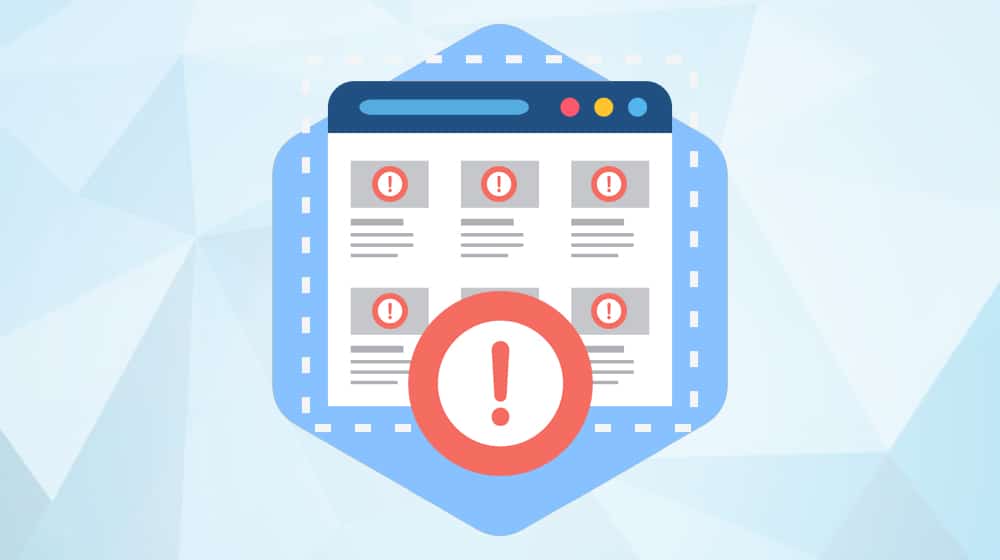
As a company that manages blogs for other companies, you'd think I'd be hesitant to write an article dedicated to all of the risks and dangers of outsourcing your blog posts. I'm not. I'm writing this post for two reasons:
- To educate you on the issues you might encounter.
- To prove that I've identified these issues and that I can help you avoid them.
Most (if not all) of what I've listed below are issues I've seen on blogs that I've managed and helped over the years. I can't even begin to tell you the number of times I've been looking over a blog I've been contracted to grow and found it riddled with issues from the company that was running it before me. Sometimes that's the fault of the owners, sure, but most of the time it's a low-quality content company that is simply doing the bare minimum.
I'm not going to lie, either; I've run into a few of these issues myself over the years. I've made the occasional mistake with a mismatched message or a lack of familiarity with the product my client is selling. When that happens, I make it right, and I replace content that doesn't work. Any good content marketing company should; it's the least we can do.
I've identified a bunch of different issues that may appear when you're outsourcing content and have divided them up into a few categories.
Here's what I've seen and what I've learned to pay attention to while I'm working.
 30 Second Summary
30 Second Summary
Outsourcing your blog content can lead to problems like SEO errors, branding inconsistencies, low-quality images, and poor-quality writing. Common issues include too much fluff content, grammar mistakes, duplicated content, poor link quality, inconsistent messaging and voice, product misalignment, using copyrighted images, low word count, and shallow content. These issues can be avoided by carefully selecting your content production company. Checking for uniqueness, audience targeting and value focus in their content is important.
SEO Issues
First up, let's talk about common SEO issues with outsourced content. I believe that some measures in SEO are overwrought and don't have nearly enough impact to worry about (like exact match keywords and keyword density), but there's still a lot to SEO that needs to be done correctly for a piece of content to perform. Here are some of the issues you might see with SEO when you're outsourcing your content to freelancers or agencies.
1. Too much fluff in your content. One of the major pitfalls of outsourcing content is a lack of consistency. A content agency might have a pool of writers working for them, and the chances are pretty good that they don't assign a given writer to a specific company. This is part laziness, and part protection; they don't want a writer tracking down a company and approaching them on the side, poaching their clients.
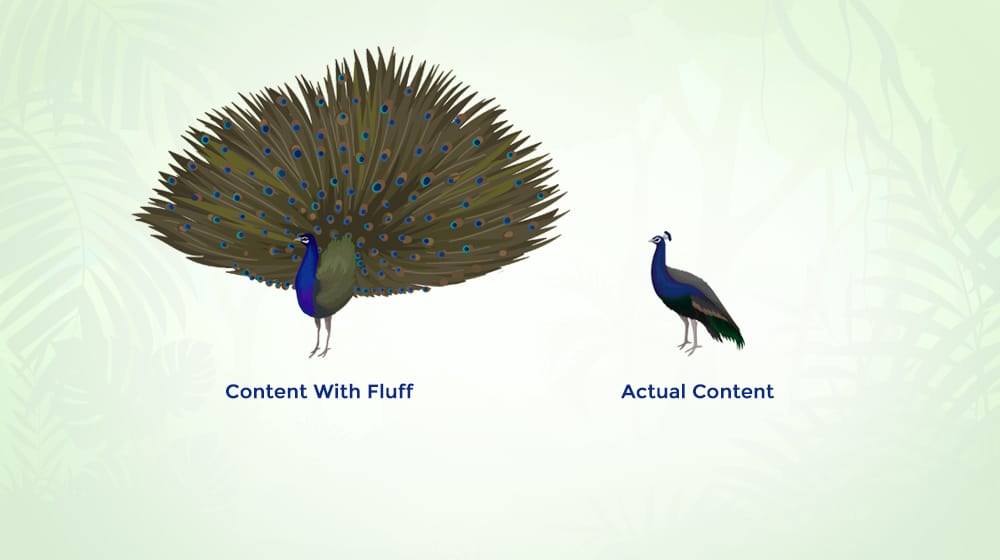
What ends up happening is that the articles that are written for the site end up being full of fluff. They write the bare minimum to meet your required word count, and they're usually fluffed up with a bunch of recap content, definitions, quotes, and other common knowledge that doesn't add any real nuggets of value to your articles. It's the same problem that you'll often find with content mills - some of the writers there are talented, but they aren't experts in specific subjects relevant to your company, and they're writing your content just well enough for you to accept it.
This is reason number one because of how often I see this. If you read some articles that were outsourced from start to finish, did you actually learn anything, or did it just ramble on and give you advice that is common knowledge? Does it seem well-researched, or something that somebody wrote off the top of their head?
2. Grammatical errors. This is particularly prevalent with low quality and low priced content mills. When you're buying content or outsourcing your blog to the lowest bidder, you're generally getting what you pay for. It might be content written without a care, it might be content written without an editor, or it might be ESL content. Whatever the cause, content that has poor English and grammar is not content that you want to represent your company.
3. Duplicated or stolen content. This is related to the above; the lowest bidder content marketing "companies" might just be stealing content. They might be obvious about it, or they might run the content through an article spinner first - either way, it's not good for your site.
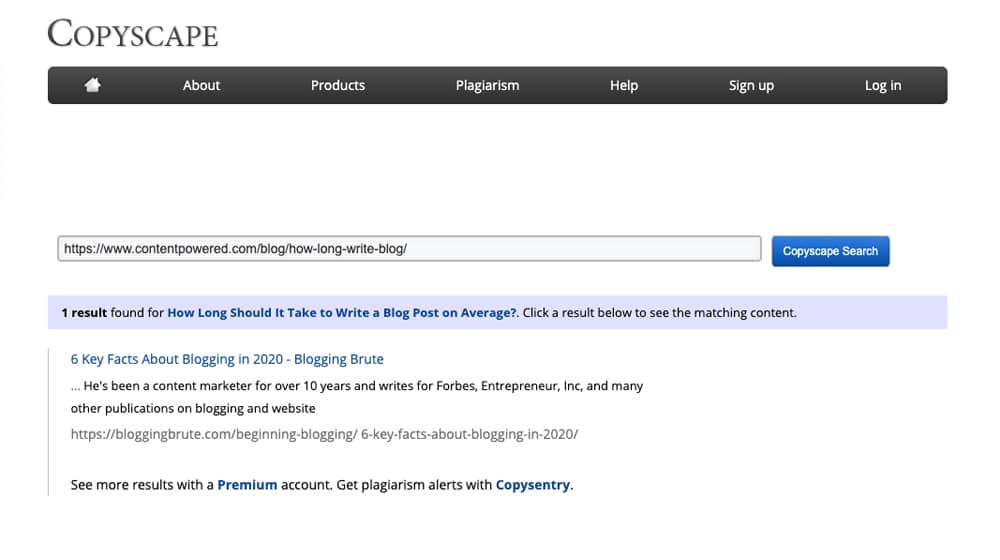
Oh, and if you think that a spinner is fine, don't. Even if you discount the fact that spun content has no original value to it beyond the original and thus won't beat it in a race, you have to recognize that Google knows all about spinning. Heck, their semantic search using synonyms and related phrases is practically spinning queries as it is. They can easily detect spinning and will certainly penalize you for it. Maybe webmasters who thought they were smarter than search engines have been humbled over the past couple of decades.
4. Poor quality links. Links are an important part of SEO. I'm not even talking about backlinks here; I'm talking about the links in your content. Where are they pointing? Usually, you want those links to point to two kinds of places; other pages on your site, and high-quality sources. I've seen plenty of poor-quality content companies either not linking at all, ignoring internal links entirely, or linking to poor quality, broken, spammy, or irrelevant sites. Some of them even use your site as part of a link selling scheme on the side. Most webmasters who outsource content don't even check the sites they're linking to, even though they are commonly the source of their search engine penalties. Somebody trusted and knowledgeable needs to be checking these things.
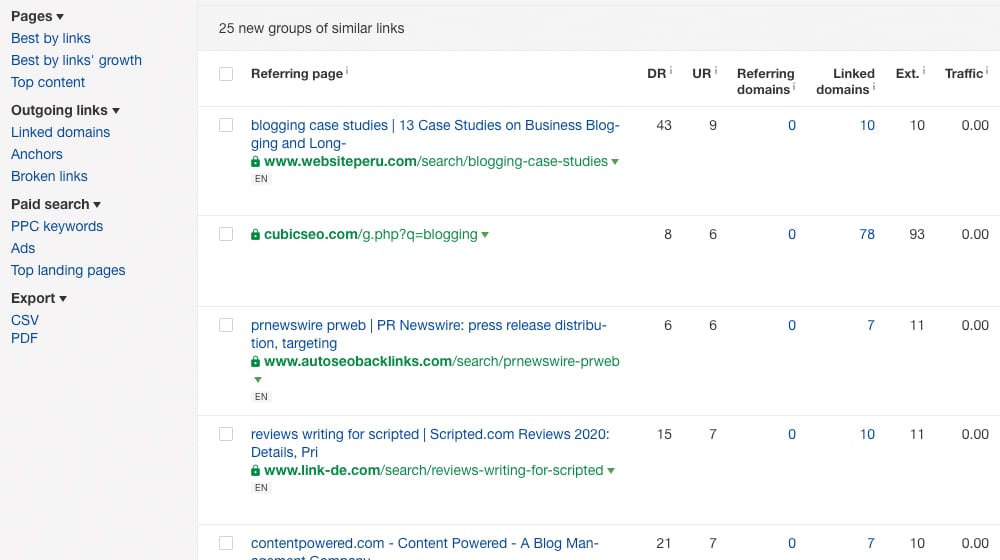
5. No consideration for SEO. Perhaps worst of all are the companies that don't know or care about SEO at all. They know enough about it to be able to sell themselves as blog managers, but they don't put any effort or knowledge into the SEO of a post. It's one of the biggest issues I've seen with outsourced content around the web.
Branding Issues
Another category of issues revolves around branding. Your company has a persona, a voice, a tone. It's what you use in marketing, on your website copy, and your social media pages. A good content company looks at that and develops its content to match. Bad outsourcers? Not so much.
6. Inconsistent brand messaging. One I see a lot is a little subtle; cases where a company's website says one thing and the blog says another. Not in overt facts, but in perspective. You might have a website selling their products on the strength of a handful of benefits, and then a blog post about how those benefits aren't that important. It would be like if I wrote a blog post about how keyword density doesn't matter, but had landing pages on my site talking about how my services allow you to specify the perfect keyword density for your posts. It's not overall a hugely important mismatch most of the time, but it's there, and some people will notice it.
7. Inconsistent voice and tone. Your company has a voice. A good blog takes that voice and runs with it. A bad company running a blog will have blog posts written in a range of different voices and tones. This can stem back to the issue of having a pool of writers all writing under the same banner. One blog post uses "I believe that," while another uses "we", and still another uses "this company." Consistency is surprisingly important for building up a dedicated readership, and while you might not notice it in isolation, anyone who reads multiple posts in a row certainly will.
8. Misalignment with products. I have to admit I've encountered this one myself. A good content marketing company will spend time talking with your business and learning what it is, how it operates, and how to portray it in your blog posts. I've had instances where a company doesn't want to talk too much about how they work, because of paranoia about trade secrets or something, and it ends up disjointed. Your blogging company produces posts that are their best guess of how your products work and the features they offer, but without a full spec sheet and working knowledge, they can only guess. Of course, some companies do this out of laziness too, so it's not always the fault of one side or the other.
We create blog content that converts - not just for ourselves, but for our clients, too.
We pick blog topics like hedge funds pick stocks. Then, we create articles that are 10x better to earn the top spot.
Content marketing has two ingredients - content and marketing. We've earned our black belts in both.
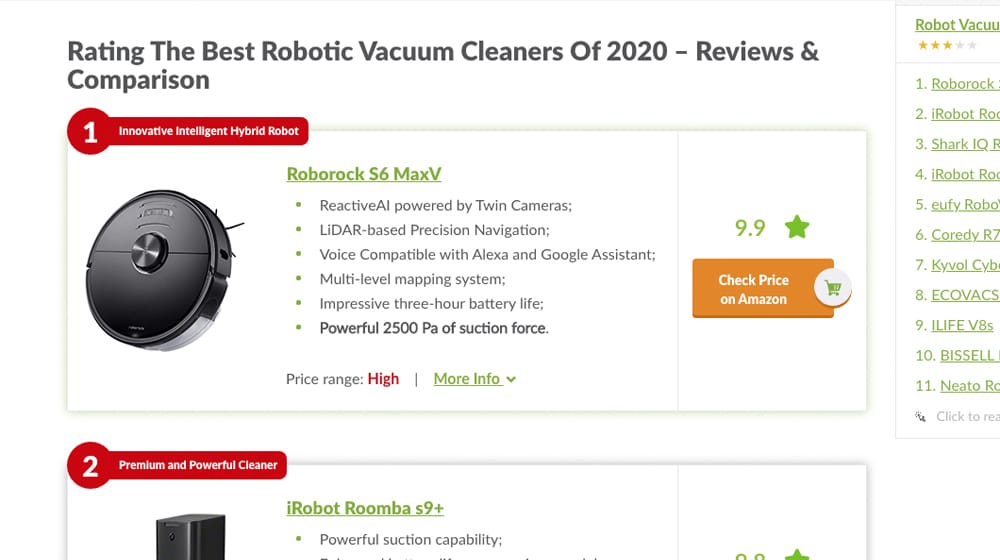
9. Recommending competitor's products. This can stem from the previous issue, and can sometimes just happen. Let's say, for example, you're a company selling office chairs. You hire a cheap company to produce content for you, and they write things like "the 10 best office chairs" as a topic. Even ignoring how competitive and impossible to rank a generic topic like that is, do you trust them to recommend your chair as #1, or even in the top 10? Maybe they just take a different top 10 articles and use those lists. They end up recommending many of your competitors in your blog post.
Now, I'm a believer that companies should, to a certain extent, work together. I'm not saying Microsoft and Apple should start advertising for one another, certainly. What I mean is that you should acknowledge that competition exists, so you can talk about how your company is better. By refusing to acknowledge competition, you end up in a tricky spot of needing to, for example, compare your product to others without mentioning other products. It doesn't work and it feels disjointed and uncomfortable to try.
Image Issues
Another part of a blog, beyond the content itself, is the images you use. All good blog posts have images as part of the post. Are you aware of how those images are being created for your blog? Are they just stock photos the content company buys, or are they not even handled that well?
I'm not the biggest fan of stock photos. They're often too generic (the chain in every blog post about link building, for example), and worse, they can be used by any other blog that wants to pay for that image. Unique content is always better.
10. No rights to the images used. Google is responsible for some of the worst copyright violations in the world, and it's entirely because of Google Image Search. To anyone who doesn't already know, 99.9% of the images in Google's image search are copyrighted and not available for you to use. You would expect that when you publish a blog post, other people shouldn't take those images that you paid for or created in Photoshop and use them without your permission, right? You have copyright over the content you create. It's automatic. The same goes for images. Yet millions of people go to Google image search and just find images to use, heedless of legality.
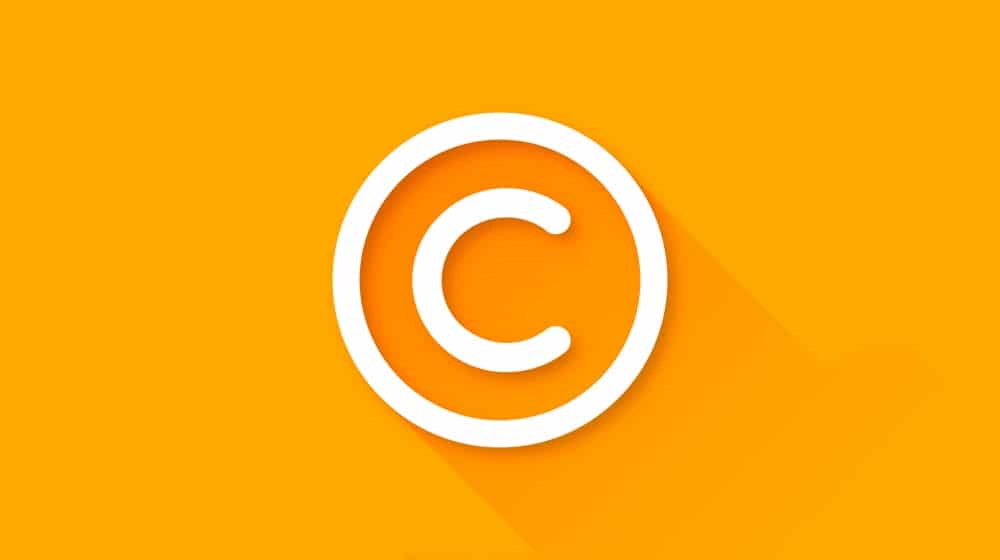
Sure, most of the time you aren't going to be punished for it because the original creator won't notice. Still, do you want to be the company known for stealing all of their images?
11. Low quality or poorly optimized images. Part SEO, part image issue, poorly optimized and poor-quality images can hurt a blog quite a bit. Low-quality images will make your blog appear poor quality at first glance - before anybody even reads into the content itself. Poorly optimized images hurt worse; they're slow to load and increase page load times, which hurts your overall SEO.
It's not difficult to take care of image issues like these, but it does need to be done, and a lot of companies that outsource content don't think about this - they just drag and drop stock photos without giving it a second thought.
Quality Issues
While to a certain extent everything above can be considered a quality issue, some issues simply come down to the quality of the content from a bird's eye level. When people talk about Google's focus on quality content, this is what they mean.
12. Shallow, poorly researched content. Outsourcing content has a huge risk of producing content that is just shallow. The low-paid writers creating it certainly aren't going to be experts in your field, and they probably aren't paid enough to become experts. Some of them are good at faking it, and some of them have experience in writing in the industry, but more often than not, you just end up with surface-level content with no deeper value. No one wants to read yet another overview of basic terminology or another beginner's guide, right?
13. Low word count. Many content companies charge contract rates, but those rates end up being pretty low as an overall cost per word. Some get around this by hiring bottom of the barrel writers to produce content at dirt cheap rates, but others simply limit the number of words in a post. When the average blog post is 1,200+ words today and that number keeps growing, you don't want to be the blog stuck publishing 500-700-word posts.
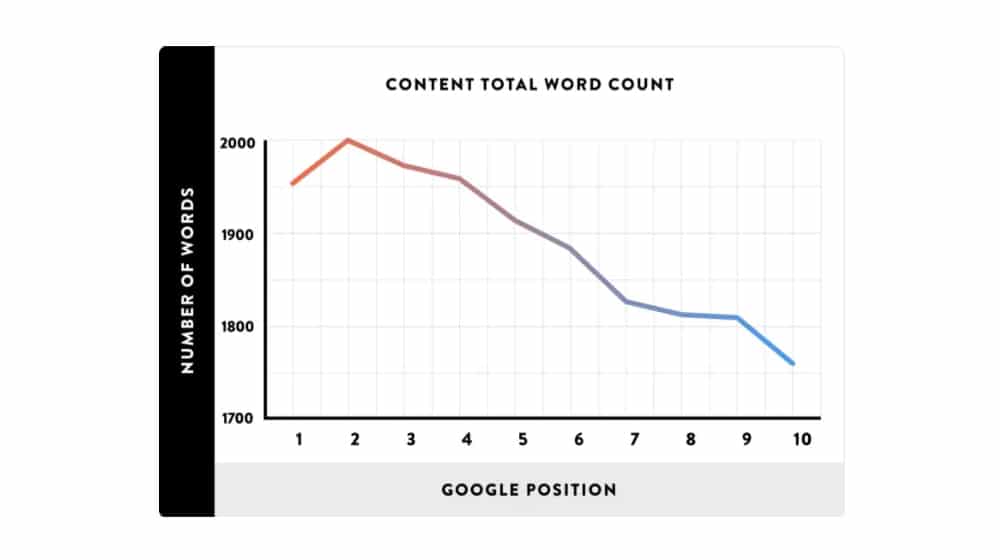
14. False premise or incorrect conclusions. I've talked to a lot of freelance writers in my day, and one thing that you commonly see among the lower-paid writers is a persistent attitude of "you pay me to write, you don't pay me to care." Some can leverage this into writing for unscrupulous companies that shill miracle cures or scammy services, but most just write basic content and don't care to do any fact-checking. That can be fine at the outset, but as time goes on and your blog grows, more and more of those inaccuracies will be brought to light, and that can hurt.
Topic Issues
One of the hardest parts of running a blog is coming up with topics to write about. You need to strike the right balance of competition versus obscurity. Too narrow a topic and no one will ever search for it. Too broad and there's no way your smaller blog can rank for it. There are a lot of things you need to consider before you even start writing about a topic. Finding those topics week after week and year after year, finding them consistently, and finding topics that check all of your boxes, is extremely time-consuming when done properly. Do you think your outsourced content freelancer or company does that? Did you check before you ordered content from them?
15. No traffic for the chosen topic. Picking a topic with no existing traffic can work in exactly one situation: when it's a topic you control and can push via advertising to generate traffic and interest. If that's not the case, choosing those topics is just wasting money.
16. Too competitive a topic. Picking a topic that has broad, deep coverage by large sites and brands can work, but only if you're willing to somehow out-do them. I could write content to out-do all of those major sites, but it'd take a lot of time to develop, and at that point, the investment isn't worth the returns. Picking a fight you can't win is a poor business practice no matter how you slice it.
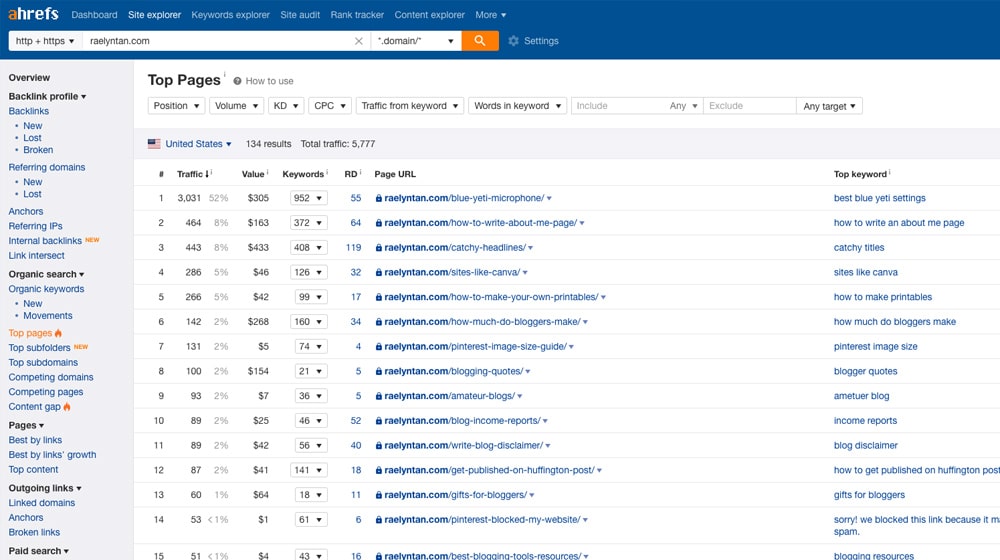
17. Incorrectly targeted audience. Who is your content for? Who are you trying to reach? I've talked to a few content production firms that don't really put any thought into it. They write content based on whatever their keyword research tools say they should, and that's the end of it. The fact is, well-engineered content should be highly targeted, and that, like topic ideation, takes a lot of research. When it's done correctly, it should be almost as time-consuming as writing the article itself. Writing an article takes time and money, and if you're not sure the topic you're writing about is going to succeed, you're rolling the dice on every post that you are outsourcing. It's not a very strategic way to use content marketing.
How to Safely Outsource Your Blog
Avoiding all of these issues might seem like a tall order, but it's really not. It should be considered the bare minimum that a good content production company does. Always ask questions of your chosen company, hire them for a test project, and analyze the content they produce. Is it unique? Targeted? Focused on value for a certain kind of audience? Or is it generic, fluffy, short, or boring? It can take some time to find a good company, but we're out there, I promise.



 30 Second Summary
30 Second Summary


April 05, 2021 at 7:19 am
This is correct. I certainly remember one time when I had my blog outsourced to a freelance writer, he actually created a blog promoting my competitor. If you want something done right you have to do it yourself.
April 07, 2021 at 11:49 pm
Hey Alden!
That's a pretty big oversight. We try to avoid linking to competitors unless we have to, but actively promoting a competitor on your blog post is unacceptable.
It sounds like you simply found someone who rushed the article. An editor should have caught this, but usually, a "one-man team" like this won't have something like this in place. We have our articles edited twice for this very reason - we don't want an embarrassing mistake like that slipping through.
Outsourcing your blog is extremely valuable, and in my opinion, inevitable. It may not be the right time for you yet. You might need to either build and train a team or hire an existing team or an agency to help you out.
April 12, 2021 at 9:55 am
Fantastic advice here James. I'm a bit of a control freak with my content and this has (unfortunately) confirmed a few of my fears. I know how bad things can go when you take your eyes off things, especially with something as sensitive and important as your website content.
April 14, 2021 at 11:53 pm
Hi Geraldine!
Don't let it steer you away - outsourcing your blog writing is inevitable. Doing everything yourself can only work for so long until you are hampering your performance by not asking for extra help.
Some advice for you is to have more than one person working on your blog.
When you have an editor, a graphic designer, and a writer (for example), you have multiple members of the team checking on each other's work and communicating with one another.
It's much easier to catch mistakes this way. Giving regular feedback is also important, both positive and negative.
This is a lot for one person to manage, which is why outsourcing your blog to a talented team isn't cheap. You can outsource articles fairly inexpensively, but the rest of the work is usually where people go wrong.
November 27, 2021 at 5:02 am
Hi James, thank you for the very insightful article. Great tips here
November 29, 2021 at 2:09 pm
Thanks, Bradford! Glad they were useful to you 🙂